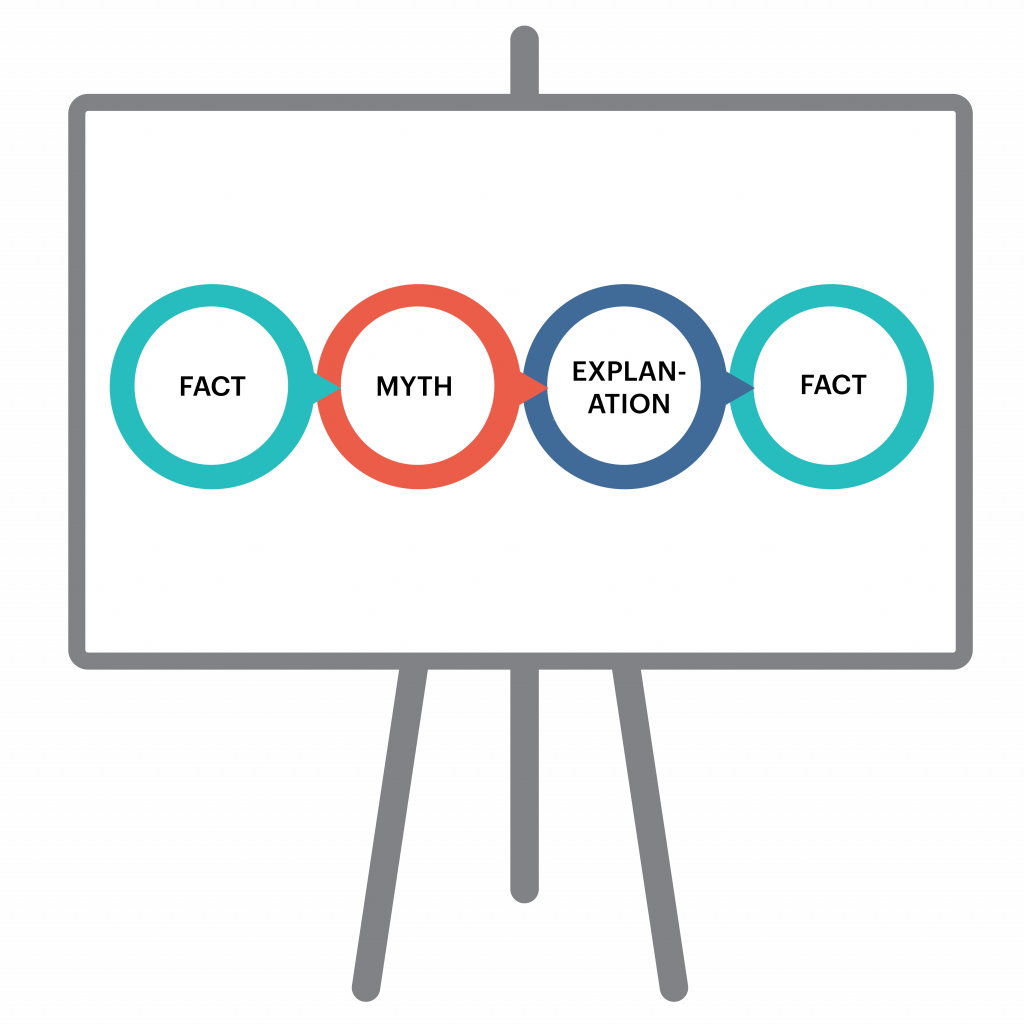
Choose the right situation
Address the issue when you and your friend are alone together, and in an environment where they feel safe. Raising the issue when others are around can make your friend feel more pressured to defend his or her opinion.
It can be very frustrating when someone close to you (like a friend) is convinced about something that you know is incorrect.
Once rumours and misconceptions have taken root, they can be difficult to break free from. Part of the problem lies in the fact that beliefs are based more on emotions and values than on facts.
Claims made by friends and family members can often outweigh what the experts and authorities are saying. Therefore, a conversation with you can make a big difference.
Here are ten tips to consider before talking to a person who is hesitant about getting vaccinated. They can be summarised in four steps:

Address the issue when you and your friend are alone together, and in an environment where they feel safe. Raising the issue when others are around can make your friend feel more pressured to defend his or her opinion.

Your friend is much more likely to listen to what you have to say if you are sensitive and respectful about his/her beliefs.


Most myths and misconceptions contain elements that are correct.
If your friend claims that the covid virus is spread via telephone masts, maybe you can agree on how dangerous the virus itself is? Try to find this type of common ground to start from.

Show that you are genuinely interested in your friends opinions.
You can then find out what is behind their beliefs and hopefully he/she will be interested in your own views on the issue.


Try to create the sense that you are both searching for the truth together.
You will then be on the same page, rather than have it turn into a discussion where one person wins and the other loses.

In your discussion, start from yourself or other sources that your friends trusts.
For example, if he/she is suspicious of pharmaceutical companies or public authorities, it is best not to refer to them as experts.


Feel free to use the order Fact-Myth-Explanation-Fact when addressing the misconception with your friend. This is a proven way to counter myths.
It is not sufficient to just tell them what is correct; you must also explain why it is (see below).

FACT
Tell them briefly and simply what is true.

MYTH
Say that you are now going to state the myth and then mention it just once.

EXPLANATION
Explain how the myth arose and why it has spread, how we know that it is not true and why the truth is correct.

FACT
Repeat what is true one more time.

FACT
Tell them briefly and simply what is true.
MYTH
Say that you are now going to state the myth and then mention it just once.
EXPLANATION
Explain how the myth arose and why it has spread, how we know that it is not true and why the truth is correct.
FACT
Repeat what is true one more time.

Speak in a way that your friend will understand.
Avoid complicated words and scientific concepts, especially if he/she isn’t particularly familiar with them.


Don’t force your friend to change his/her opinion. He/she may need time and space to think it over after your discussion.
It takes time to change beliefs, and we all need to feel in control of our own perceptions and decisions.

Try to raise the issue on several occasions.
Repetition increases the likelihood of your friend changing his/her opinion.

The World Health Organization (WHO) stated early on that an infodemic is taking place alongside the pandemic. During this infodemic, individuals and organisations are spreading large amounts of both accurate and inaccurate information about the coronavirus and the vaccine.
Misleading information is sometimes spread intentionally and sometimes unintentionally in the belief that it is correct. It can originate from anything, including old news that was considered true at the time it was distributed, to outright lies.
There can be several reasons why rumours and false information become widespread. Research has shown, for example, that rumours spread faster and more widely when there is huge concern or uncertainty about what is happening.